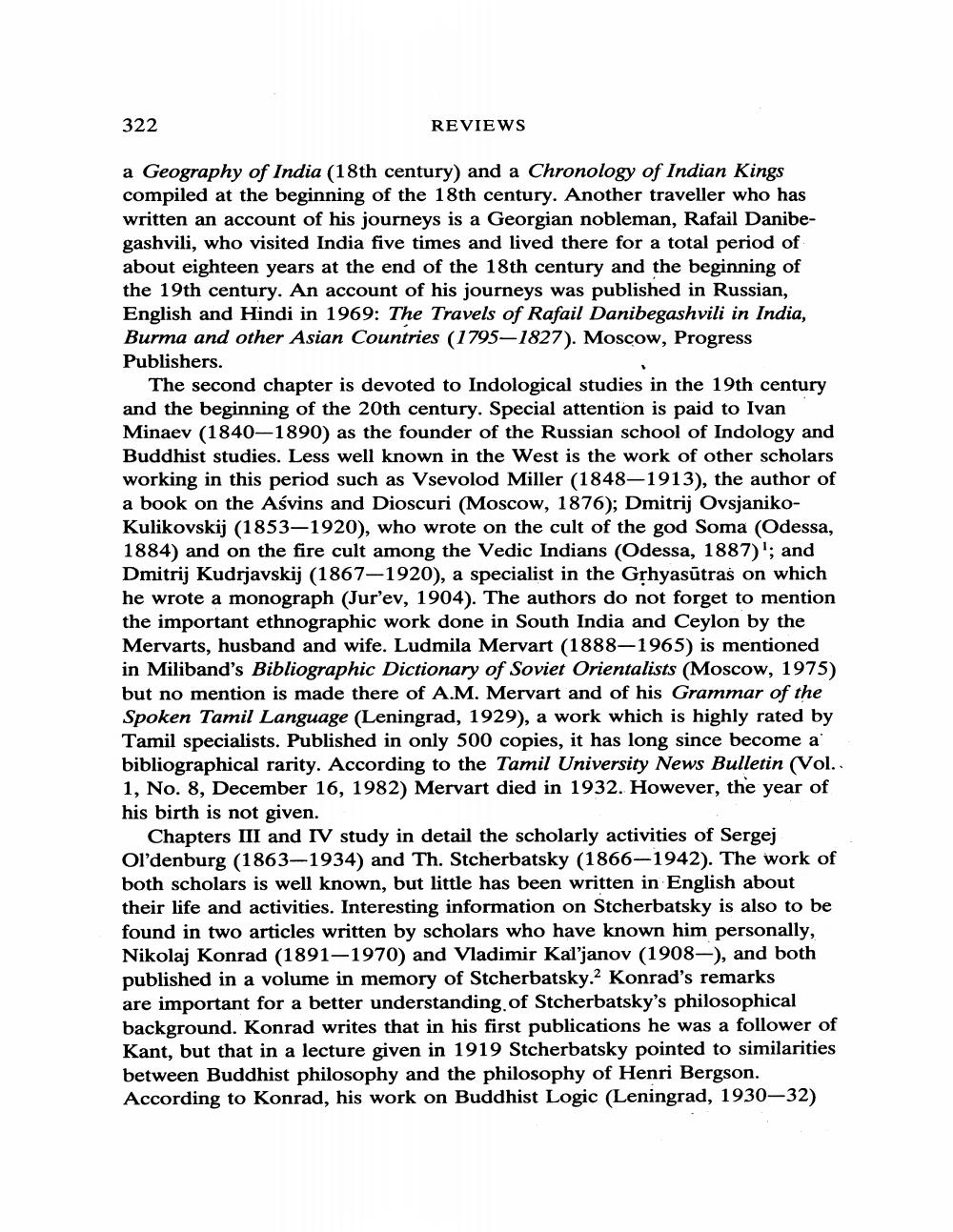Book Title: Book Reviews Author(s): J W De Jong Publisher: J W De Jong View full book textPage 2
________________ 322 REVIEWS a Geography of India (18th century) and a Chronology of Indian Kings compiled at the beginning of the 18th century. Another traveller who has written an account of his journeys is a Georgian nobleman, Rafail Danibegashvili, who visited India five times and lived there for a total period of about eighteen years at the end of the 18th century and the beginning of the 19th century. An account of his journeys was published in Russian, English and Hindi in 1969: The Travels of Rafail Danibegashvili in India, Burma and other Asian Countries (1795–1827). Moscow, Progress Publishers. The second chapter is devoted to Indological studies in the 19th century and the beginning of the 20th century. Special attention is paid to Ivan Minaev (1840-1890) as the founder of the Russian school of Indology and Buddhist studies. Less well known in the West is the work of other scholars working in this period such as Vsevolod Miller (1848–1913), the author of a book on the Asvins and Dioscuri (Moscow, 1876); Dmitrij OvsjanikoKulikovskij (1853–1920), who wrote on the cult of the god Soma (Odessa, 1884) and on the fire cult among the Vedic Indians (Odessa, 1887) '; and Dmitrij Kudrjavskij (1867–1920), a specialist in the Grhyasūtras on which he wrote a monograph (Jur'ev, 1904). The authors do not forget to mention the important ethnographic work done in South India and Ceylon by the Mervarts, husband and wife. Ludmila Mervart (1888–1965) is mentioned in Miliband's Bibliographic Dictionary of Soviet Orientalists (Moscow, 1975) but no mention is made there of A.M. Mervart and of his Grammar of the Spoken Tamil Language (Leningrad, 1929), a work which is highly rated by Tamil specialists. Published in only 500 copies, it has long since become a bibliographical rarity. According to the Tamil University News Bulletin (Vol. 1, No. 8, December 16, 1982) Mervart died in 1932. However, the year of his birth is not given. Chapters III and IV study in detail the scholarly activities of Sergej Oldenburg (1863-1934) and Th. Stcherbatsky (1866-1942). The work of both scholars is well known, but little has been written in English about their life and activities. Interesting information on Stcherbatsky is also to be found in two articles written by scholars who have known him personally, Nikolaj Konrad (1891–1970) and Vladimir Kal’janov (1908–), and both published in a volume in memory of Stcherbatsky.2 Konrad's remarks are important for a better understanding. of Stcherbatsky's philosophical background. Konrad writes that in his first publications he was a follower of Kant, but that in a lecture given in 1919 Stcherbatsky pointed to similarities between Buddhist philosophy and the philosophy of Henri Bergson. According to Konrad, his work on Buddhist Logic (Leningrad, 1930-32)Page Navigation
1 2 3 4
